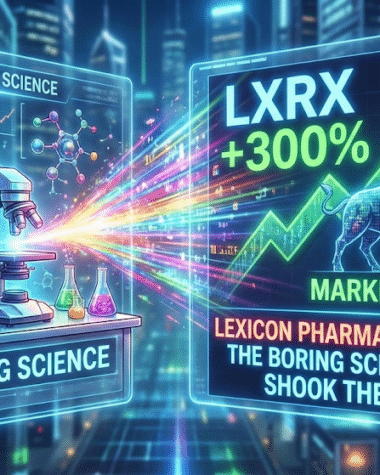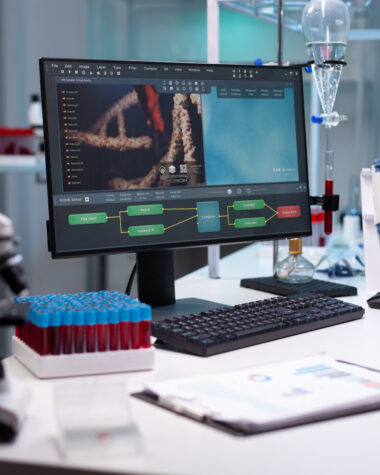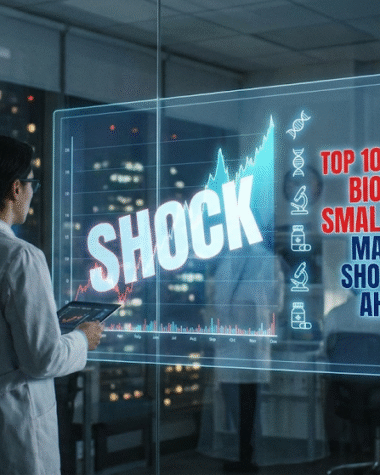Rigel Pharmaceuticals (NASDAQ:RIGL) has quietly emerged as one of the most compelling under-the-radar biotech turnaround stories in the market. After years of developmental burn and volatility, the company now commands a fully-fledged commercial portfolio, a near-profitable operating profile, and a rich pipeline anchored by fast-tracked investigational drugs. From a fundamental, technical, and valuation perspective, Rigel appears primed for a breakout—Rigel Pharmaceuticals, Inc. (NASDAQ: RIGL) is a South San Francisco–based biotechnology company founded in 1996 by a team of Stanford University scientists and industry veterans who believed that precisely targeting intracellular signaling kinases could unlock a new generation of oral therapies for immune disorders and cancer. The start-up’s early platform combined high-throughput screening with proprietary bioinformatic tools to map disease-driving pathways and rapidly identify small-molecule inhibitors, a technology edge that helped Rigel forge research alliances with giants such as Pfizer, Daiichi Sankyo, and AstraZeneca in its first decade. While those partnerships provided crucial non-dilutive funding, Rigel retained full ownership of fostamatinib, a first-in-class spleen tyrosine kinase (SYK) inhibitor that became the company’s proof of concept drug. After navigating multiple autoimmune indications, fostamatinib finally won U.S. approval in April 2018 as TAVALISSE® for adults with chronic immune thrombocytopenia who had failed prior therapies, transforming Rigel from a pure R&D player into a commercial enterprise.
The launch of TAVALISSE laid the commercial foundation—and validated the strategy—needed to expand into oncology. Rigel used the cash flow from TAVALISSE and a modest royalty monetization to acquire REZLIDHIA® (olutasidenib), an oral IDH1 inhibitor that secured FDA approval in December 2022 for relapsed or refractory acute myeloid leukemia with susceptible IDH1 mutation. Only two years later the company struck another transformative deal, taking over U.S. rights to GAVRETO® (pralsetinib), a once-daily RET inhibitor originally developed by Blueprint Medicines and approved under the FDA’s accelerated pathway for metastatic RET-positive non-small cell lung cancer and thyroid cancer. With three marketed products addressing distinct hematologic and oncologic niches, Rigel now generates more than $200 million in annual revenue at industry-leading gross margins near 90 percent, a rare feat for a biotech of its size.
Rigel’s scientific core remains active: the internally discovered IRAK1/4 inhibitor R289 has fast-track and orphan-drug designations for lower-risk myelodysplastic syndromes and is on track to enter mid-stage trials in the second half of 2025; additional programs explore fostamatinib in chronic graft-versus-host disease, severe COVID-related ARDS, and autoimmune indications, while partnered research with Eli Lilly is advancing kinase inhibitors for central nervous system diseases. Under the leadership of Chief Executive Officer Raul Rodriguez—who succeeded founding CEO James Gower in 2014—the company has combined disciplined capital allocation with opportunistic deal-making, allowing it to self-fund pipeline growth without excessive shareholder dilution. Today, Rigel’s diversified revenue, advancing pipeline, and strategic alliances position it as a maturing biotech capable of delivering both near-term profitability and long-term innovation, making the stock an intriguing candidate for investors seeking exposure to commercially validated yet still growth-oriented life-science companies.by robust product sales, strong gross margins, and significant near-term catalysts.
Solid Fundamentals Reinforce Growth Momentum
Rigel’s financial evolution is evident in its trailing twelve-month metrics, which show a clear shift from being a capital-intensive R&D firm to a lean, revenue-generating biopharma enterprise. The company generated $203.1 million in revenue over the last 12 months, with an impressive gross margin of 89.64%—a testament to its operational efficiency and pricing power in niche indications.
The market has started to notice. As of the latest close, Rigel trades at $18.93, with a price-to-earnings (P/E) ratio of just 9.13 based on trailing earnings per share (EPS) of $2.07. This is markedly undervalued in comparison to its peers in the biotech sector, many of which trade well above 20x earnings without profitability. Even on a forward-looking basis, the company’s forward P/E sits at 27.72, pricing in expected EPS growth while still remaining attractive from a growth-adjusted standpoint.
Rigel’s EBITDA stands at $46.36 million, and net margins of 18.31% reflect that its existing commercial assets are contributing real value—not just theoretical promise. Despite a relatively high debt-to-equity ratio of 321.79%, the company maintains adequate liquidity to support its development pipeline and meet financial obligations without excessive dilution.

CHECK THIS OUT: Exact Sciences (EXAS) Just Made Cancer Detection 100x Easier! and Soleno Therapeutics (SLNO): The Biotech Company That Could Make You Rich.
Technically Aligned for Upside Breakout
RIGL stock has been gaining bullish momentum in 2025, rising 12.54% year-to-date. This resurgence follows a 52-week low of $7.48 set on July 5, 2024, and is well off its 52-week high of $29.82 set on November 12, 2024. With a current trading range between $18.65 and $19.18, and a 10-day average volume of 240,000 shares, Rigel is beginning to show signs of accumulation—a technical signal that institutional buyers may be returning.
Moreover, the stock’s beta of 1.20 indicates moderate volatility, which is typical in biotech but also reflects the upside potential when catalysts materialize. With an earnings date estimated for August 4, 2025, traders and long-term investors alike are positioning ahead of what could be a material upward revision in guidance based on recent product performance.
Commercial Portfolio Powers Sustainable Revenue
Rigel is no longer just a speculative bet on future pipeline assets. Its three marketed therapies—TAVALISSE (fostamatinib) for chronic immune thrombocytopenia (ITP), REZLIDHIA (olutasidenib) for relapsed/refractory acute myeloid leukemia (AML), and GAVRETO (pralsetinib) for RET-fusion non-small cell lung cancer—are anchoring its financial foundation.
In particular, REZLIDHIA has seen quarter-over-quarter sales growth of 68%, driven by strong physician uptake and expanding payer coverage. TAVALISSE remains a durable revenue contributor, even as it faces potential competition from emerging therapies. GAVRETO, meanwhile, is generating growing revenues, benefiting from increasing precision-medicine adoption and international expansion through partnerships.
This diversified revenue stream allows Rigel to self-fund much of its pipeline development—a rare advantage in the biotech space, where most companies depend heavily on equity dilution or partnership royalties.
R289 and the Pipeline Offer High-Conviction Catalysts
Perhaps the most exciting aspect of Rigel’s future lies in its clinical-stage pipeline, particularly R289, a novel IRAK1/4 inhibitor for lower-risk myelodysplastic syndromes (MDS). The FDA has already granted the drug Fast Track and Orphan Drug designations, and early Phase 1b data has shown promising hematologic responses. With a Phase 2 trial expected to begin in the second half of 2025, investor anticipation is high—and any favorable interim results could propel the stock sharply higher.
Beyond R289, Rigel has a research-stage central nervous system (CNS) portfolio being co-developed with Eli Lilly, targeting high-value indications such as glioblastoma and autoimmune diseases. The partnership not only validates Rigel’s scientific approach but also brings in non-dilutive capital to support these high-risk/high-reward programs.
Fostamatinib, originally approved for ITP, is now being explored in multiple additional indications including COVID-19-related ARDS and cGvHD, representing substantial market expansion opportunities. Each of these label expansions could significantly amplify existing revenue without the need for new infrastructure or commercial launches.
Strategic Positioning and Partnership Synergies
Rigel’s success isn’t being built in isolation. It has forged strategic alliances with global players like Eli Lilly, Daiichi Sankyo, BerGenBio, and MD Anderson Cancer Center. These partnerships not only bolster development capabilities but also act as a risk-mitigation buffer in the capital-intensive world of drug development.
By distributing R&D risk while retaining commercial rights in key markets, Rigel is executing a disciplined growth strategy. It’s leveraging its in-house scientific expertise to push assets forward while ensuring that operational execution remains within its means—a major advantage over pure-play development-stage companies.
Undervalued by the Market Despite Proven Execution
Despite its commercial success, maturing pipeline, and improving profitability metrics, Rigel remains significantly undervalued by the market. Its current market capitalization sits at $338.33 million—less than 2x trailing revenue—making it one of the few profitable biotech companies trading below peer average valuations.
The discrepancy becomes even more glaring when comparing against biotech names with similar revenue levels but no commercial products. Analysts have started to take notice, with several firms initiating or reiterating Buy ratings in 2025 and setting price targets between $33 and $57. This implies an upside potential of 75% to over 160% from current levels.
The upcoming earnings report and R289 trial updates represent key inflection points that could drive significant multiple expansion. Meanwhile, continued growth in REZLIDHIA and GAVRETO provides a strong buffer against downside volatility.
A Biotech Stock That’s Transitioning from Story to Substance
In the often speculative world of biotech investing, Rigel Pharmaceuticals is quickly becoming a standout case study in execution. It is no longer a binary, all-or-nothing development-stage company. With a triple-threat commercial portfolio, a blockbuster-capable pipeline, improving margins, and strategic collaborations, Rigel is building sustainable long-term value.
Investors seeking a well-positioned biotech name with real earnings, real revenue, and real upside potential would be wise to take a closer look at RIGL before its next set of catalysts are priced in. As the company pushes toward Phase 2 trials for R289 and continues to report strong commercial results, the current valuation may soon be seen as a historic bargain.
READ ALSO: Johnson & Johnson (JNJ) can be the Next Trillion-Dollar Stock and Boston Scientific (BSX) Just Signed a $45M Deal—Here’s What It Means for Investors.








